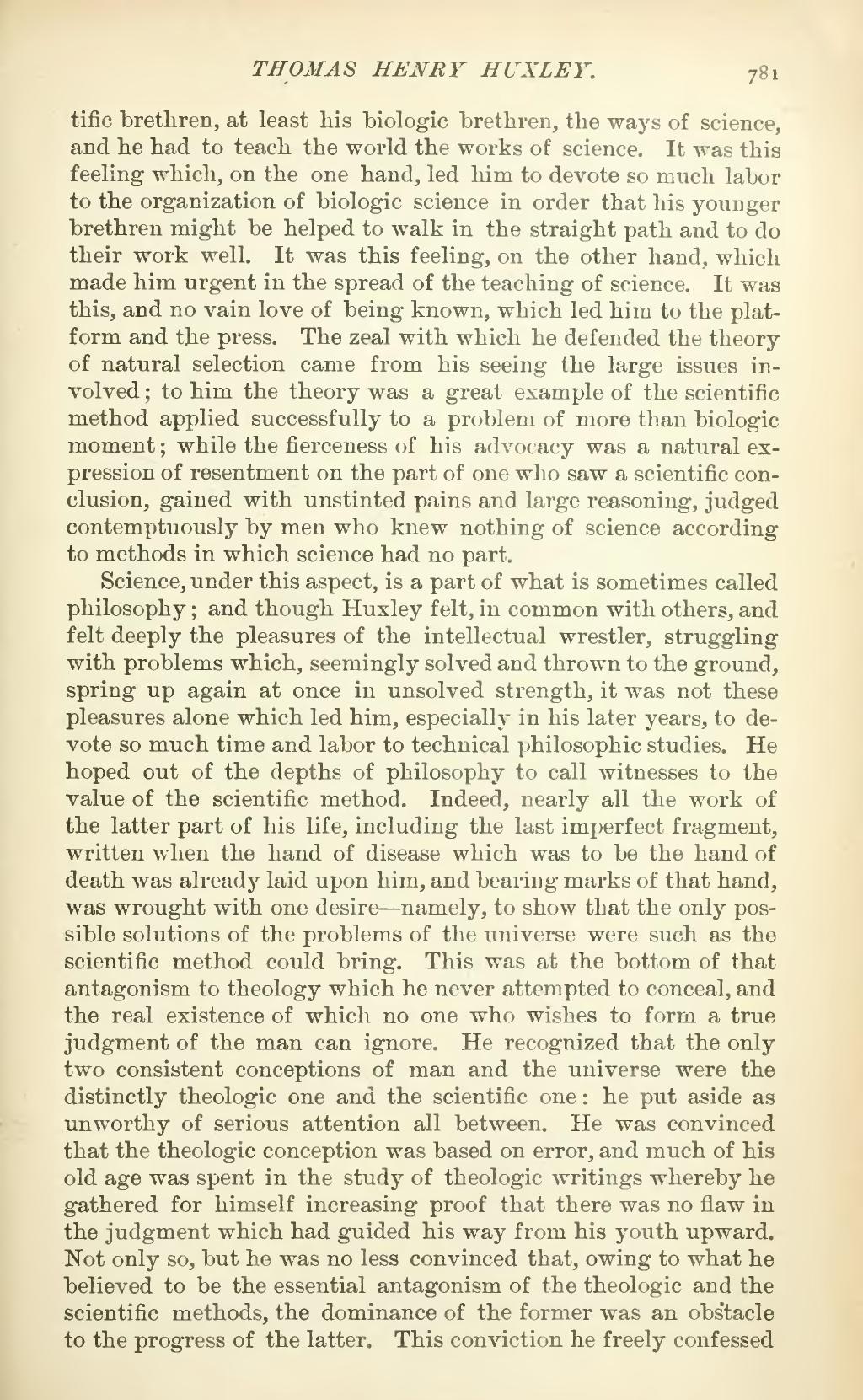tific brethren, at least his biologic brethren, the ways of science, and he had to teach the world the works of science. It was this feeling which, on the one hand, led him to devote so much labor to the organization of biologic science in order that his younger brethren might be helped to walk in the straight path and to do their work well. It was this feeling, on the other hand, which made him urgent in the spread of the teaching of science. It was this, and no vain love of being known, which led him to the platform and the press. The zeal with which he defended the theory of natural selection came from his seeing the large issues involved; to him the theory was a great example of the scientific method applied successfully to a problem of more than biologic moment; while the fierceness of his advocacy was a natural expression of resentment on the part of one who saw a scientific conclusion, gained with unstinted pains and large reasoning, judged contemptuously by men who knew nothing of science according to methods in which science had no part.
Science, under this aspect, is a part of what is sometimes called philosophy; and though Huxley felt, in common with others, and felt deeply the pleasures of the intellectual wrestler, struggling with problems which, seemingly solved and thrown to the ground, spring up again at once in unsolved strength, it was not these pleasures alone which led him, especially in his later years, to devote so much time and labor to technical philosophic studies. He hoped out of the depths of philosophy to call witnesses to the value of the scientific method. Indeed, nearly all the work of the latter part of his life, including the last imperfect fragment, written when the hand of disease which was to be the hand of death was already laid upon him, and bearing marks of that hand, was wrought with one desire—namely, to show that the only possible solutions of the problems of the universe were such as the scientific method could bring. This was at the bottom of that antagonism to theology which he never attempted to conceal, and the real existence of which no one who wishes to form a true judgment of the man can ignore. He recognized that the only two consistent conceptions of man and the universe were the distinctly theologic one and the scientific one: he put aside as unworthy of serious attention all between. He was convinced that the theologic conception was based on error, and much of his old age was spent in the study of theologic writings whereby he gathered for himself increasing proof that there was no flaw in the judgment which had guided his way from his youth upward. Not only so, but he was no less convinced that, owing to what he believed to be the essential antagonism of the theologic and the scientific methods, the dominance of the former was an obstacle to the progress of the latter. This conviction he freely confessed
